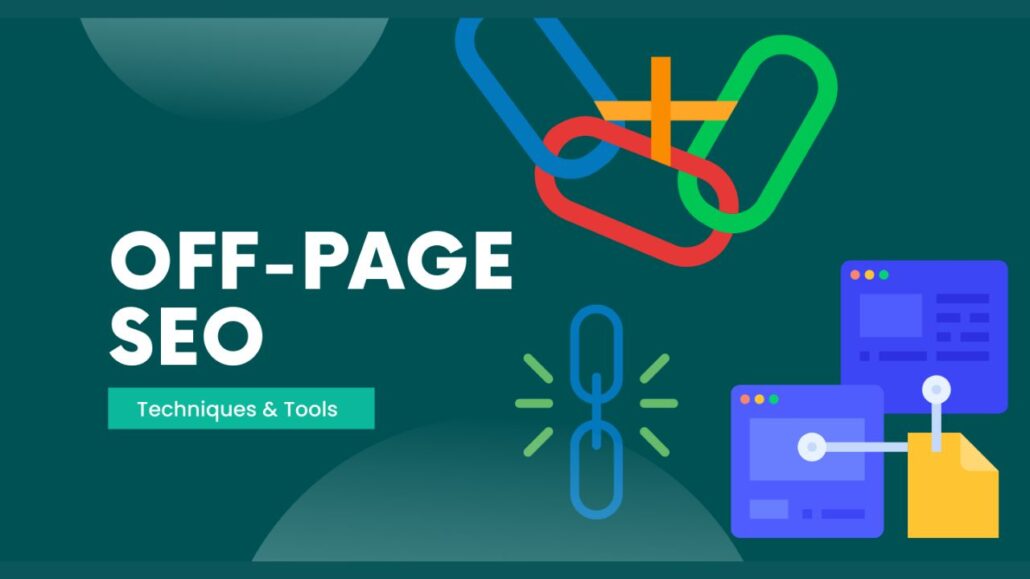In today’s digital landscape, staying ahead of the curve regarding search engine optimization (SEO) is crucial for businesses and website owners. With the increasing prevalence of voice search, optimizing your website for this emerging trend has become paramount.
This article will delve into voice search, first, and explore how it intersects with on-page SEO strategies. Secondly, let’s uncover what you need to know to make your website voice search-friendly, thus enhancing your online presence.
Voice Search

The Rise of Voice Assistants
Voice-activated virtual assistants like Siri, Google Assistant, and Alexa have gained widespread adoption. Consequently, they have become integral to people’s daily lives, providing information, entertainment, and assistance.
How Voice Search Works
Voice search functions by converting spoken words into text and using natural language processing to understand the user’s query. The virtual assistant then retrieves relevant information from the internet and presents it audibly to the user.
Voice Search vs. Text Search
Voice search queries are typically longer and more conversational compared to text searches. Users tend to phrase their questions in a way they would speak to a person, making it essential for SEO professionals to adapt their strategies.
Importance of Voice Search Optimization

Changing User Behavior
As voice search becomes more intuitive and accessible, users increasingly rely on it to find information quickly. Websites catering to this behavior shift stand to gain a competitive edge.
Mobile and Local Search
Voice searches are often location-based, making them ideal for businesses targeting local customers. Optimizing for voice search enhances your chances of appearing in local search results.
Competitive Advantage
Early adopters of voice search optimization can establish themselves as authorities in their niche, attracting more organic traffic and potential customers.
On-Page SEO Elements for Voice Search

High-Quality Content
Creating content that directly answers common voice search queries can significantly boost your website’s visibility. Therefore, focus on producing informative, concise, and relevant content.
Featured Snippets
Voice assistants often pull information from featured snippets; therefore, structuring your content for featured snippet inclusion is a smart strategy.
Schema Markup
Implementing schema markup helps search engines better understand your content, consequently increasing the likelihood of it being featured in voice search results.
Keyword Strategy for Voice Search
Long-Tail Keywords
Long-tail keywords mimic conversational phrases and are more likely to match voice search queries.
Natural Language Queries
To enhance your content’s performance, firstly, optimize it for natural language questions, since voice searches tend to be phrased in a question format.
Question-Based Keywords
Incorporating question-based keywords into your content can make it more voice search-friendly.
Technical Considerations
Page Speed
Fast-loading pages are essential for a positive user experience, especially in voice search, where users expect quick responses.
Mobile-Friendly Design
Ensure your website is responsive and mobile-friendly, as many voice searches occur on mobile devices.
Secure HTTPS Connection
Security matters. A secure website is more likely to be recommended by voice assistants.
Voice Search Analytics
Tracking Voice Search Performance
Utilize analytics tools to monitor how voice search impacts your website’s traffic and engagement.
Adjusting SEO Strategies
Based on the data, refine your SEO strategies to maximize the benefits of voice search optimization.
The Future of Voice Search and SEO
Evolving Algorithms
Expect search engine algorithms to evolve to better understand and cater to voice search queries.
Voice Commerce
Voice commerce is on the horizon; consequently, it is crucial for e-commerce businesses to prepare for voice-driven transactions.
Multilingual Voice Search
As voice search expands globally, optimizing for multiple languages will become increasingly important. In conclusion, voice search is no longer a futuristic concept; rather, it’s a present reality that significantly impacts SEO.
Additionally, by understanding the nuances of voice search and implementing effective on-page SEO strategies, you can stay ahead in the digital landscape and ensure your website remains relevant and accessible.
Off-Page SEO

Off-page SEO, in essence, refers to the strategies and activities beyond your website that are aimed at improving its search engine ranking and online visibility.
Additionally, it primarily focuses on building quality backlinks and enhancing your website’s reputation in the digital landscape. Moreover, off-page SEO involves link building, social media marketing, influencer outreach, and online reputation management.
On-Page SEO Checklist
An on-page SEO checklist includes a series of tasks to optimize individual web pages for search engines. Key elements to consider in an on-page SEO checklist include:
- Optimizing meta titles and descriptions
- Using relevant keywords
- Creating high-quality and engaging content
- Improving page load speed
- Ensuring mobile-friendliness
- Optimizing images and multimedia elements
Voice Search Optimization in Digital Marketing
Multilingual voice search optimization, consequently, is a digital marketing strategy aimed at optimizing content and websites to be more discoverable through voice-activated virtual assistants such as Siri, Google Assistant, and Alexa.
Additionally, this involves using natural language, targeting conversational keywords, and providing concise and informative answers to voice search queries.
Voice Search Optimization Examples
Examples of voice search optimization include:
- Using long-tail keywords: Instead of “Italian restaurants,” optimize for “What are the best Italian restaurants near me?”
- Structuring content in a question-and-answer format to match common voice search queries.
- Local optimization for “near me” queries, e.g., “Find a gas station near me.”
- We are optimizing for voice-friendly devices like smart speakers and smartphones.
Importance of Voice Search Optimization
Multilingual voice search optimization is crucial because many people use voice-activated devices to search for information. By optimizing for voice search, businesses can improve their visibility in search results and reach a broader audience, especially in local and mobile searches.
Voice Search vs. Traditional Search
Voice Search and On-Page SEO; however, voice search differs from traditional text-based search, relying on spoken language and conversational queries.
Traditional search typically involves typing short keyword phrases into search engines, while voice search uses natural language questions and often provides concise spoken responses.
Types vs. Talkers
Types refer to users who prefer typing their queries into search engines, while talkers use voice-activated assistants to ask questions verbally. Optimizing for both typers and talkers is essential for a comprehensive SEO strategy.
Conversational Keywords
Conversational keywords are longer and more natural language phrases used in voice search. For example, “best pizza in town” is a conversational keyword, whereas “pizza” is a traditional keyword.
Context & Personalization
Furthermore, voice search considers user context and personalization, providing tailored responses based on user preferences, location, and search history.
Vicinity & Location
Voice search often includes location-specific queries; therefore, making local SEO critical for businesses that capture nearby customers searching for products or services.
Best Types of Content for Voice SEO
Content types that work well for voice SEO include:
- FAQs and Q&A pages.
- How-to guides and tutorials.
- Local business listings and reviews.
- Short, concise answers to common queries.
Rich Snippets
Rich snippets, moreover, are structured data markup that enhances search results. In addition, they provide additional information such as ratings, reviews, and images. Furthermore, implementing rich snippets can improve the visibility of your content in voice search results and traditional search results.
FAQ:
Is Voice Search Important for My Website’s SEO?
Yes, indeed, voice search is becoming increasingly important as more users adopt voice-activated virtual assistants.
How Can I Find Voice Search Keywords Relevant to My Niche?
Keyword research tools can help identify voice search keywords specific to your industry.
Does Optimizing for Voice Search Affect My Website’s Text-Based SEO?
Optimizing for voice search can complement your text-based SEO efforts and improve overall visibility.
Are there any Specific Tools for Tracking Voice Search Performance?
Yes, there are analytics tools that can help you track voice search performance on your website.
What Should I Prioritize: Text-Based SEO or Voice Search Tracking Optimization?
Both are important, but considering the rise of voice search tracking, it’s wise to invest in multilingual voice search optimization alongside traditional SEO practices.
How to Do SEO for Voice Search?
To optimize voice search, firstly focus on natural language keywords. Additionally, provide concise answers, and finally, ensure mobile-friendliness for voice-enabled devices.
How Does Voice Search Impact SEO?
Voice search affects SEO in several ways. Firstly, it emphasizes conversational queries, which necessitate concise and relevant content. Secondly, it favors featured snippets and local results.
What is Needed for On-page SEO?
To achieve better search engine rankings, Furthermore, on-page SEO requires keyword optimization, high-quality content, meta tags, user-friendly URLs, and mobile responsiveness.
What Do You Know About On-Page SEO?
On-page SEO involves optimizing web pages to improve their search engine visibility. It includes optimizing content, meta tags, images, and overall page structure.
What are the Three Most Important On-page SEO Factors?
The three most important on-page SEO factors are:
-
-
- Keyword optimization
- High-quality, relevant content
- User-friendly website structure
-
What are the Five Most Important On-page SEO Factors?
The five most important on-page SEO factors include:
- Keyword optimization
- High-quality content
- User-friendly website structure
- Optimized meta tags
- Mobile responsiveness



